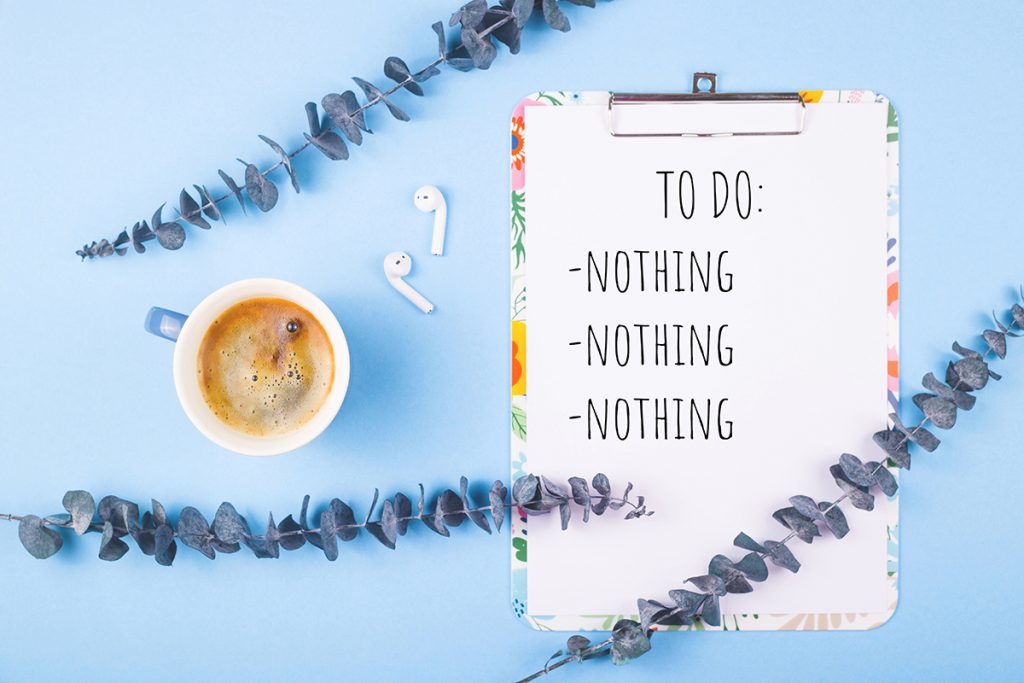Is FOMO (Fear Of Missing Out) affecting your life?

Are you afraid of missing something fun or important? Do you constantly check your phone to see what your friends are up to? Do you feel restless when you have nothing to do for an evening? Then you may suffer from the Fear of Missing Out, also known as FOMO. In this NewWaysBetterDays article we explain where this fear comes from and what you can do about it yourself.

What is FOMO?
The British psychologist Andrew Przybylski defines the FOMO phenomenon as the feeling that others have more rewarding experiences from which you feel left out. An example of a rewarding experience can be a party, festival or a nice holiday.
You become anxious that others in your social network lead more interesting and socially more desirable lives than you do. As a result, you may feel compelled to stay in constant contact with and be informed about other people’s activities (Przybylski et al., 2013).
“What happens if I miss something or if I am not there?”

What are the characteristics of FOMO?
You may be suffering from FOMO if you recognize the following feelings:
- You feel that you are missing something if you are not at an activity that many others (friends, family, colleagues) are attending.
- You feel like everyone is doing fun things when you aren’t around.
- You constantly check your mobile phone (or tablet) for updates from friends and would like to stay informed of the latest news, articles and blogs.
- You feel that you should make the most of every moment of the day.
- You feel restless when you have nothing planned for an evening.
- You postpone small practical matters but also important matters due to your use of social media.
- You suffer from stress and difficulty concentrating.
- You often feel insecure and restless.
- You have trouble sleeping and feel tired.
FOMO can have adverse effects on your health and well-being. If you are constantly socially active because you are afraid of missing out, then this can lead to:
Fatigue / headache / lack of motivation / impaired functioning at school or work / burnout.
FOMO can trigger feelings of anxiety and loneliness and self-critical thoughts as well, such as:
- “What happens if I miss something or if I am not there?”.
- “Will people speak negatively about me because I couldn’t be there?”.
- “Will people think I’m worth less because I don’t follow a certain trend?”.
This spiral of anxious thoughts and the urge to keep track of everything can eventually result in depression.
What are the risk factors of FOMO?
Research shows a number of factors that increase the risk of FOMO. For example, FOMO is more common in people who are less satisfied with the fulfillment of certain basic needs. Because when people have less confidence in their own abilities (need for competence), experience little influence on their own choices and actions (need for autonomy), or when they are less satisfied with their social relationships with others (need for connection). Then they are more sensitive to the fear of missing out on social activities.

Is FOMO a typical millennial problem?
Psychologists have been researching this FOMO phenomenon for a few years now. It is often thought that FOMO is a typical millennial problem, since this generation grew up with a mobile phone and uses social media more than other generations.
However, a study by Barry and Wong (2020) shows that there are no generational differences when it comes to FOMO. The fact that one suffers more from FOMO than the other seems to be the result of their amount of social media use, rather than being generation-bound. A study by Przybylski and his colleagues (2013) shows a similar result.
“Will people speak negatively about me because I couldn’t be there?”
What is the psychology behind FOMO?
The Fear Of Missing Out is nothing new in itself. In the past, people were afraid of missing out too, or feared that other people had it better and experienced more fun. Yet the Fear of Missing Out as a psychological concept has only just emerged. This is partly due to the current experience of society, the explosive growth of social media and the choice paradox.
In today’s society, the focus in the pursuit of happiness is on seeking out new and exceptional experiences as frequently as possible. This obsession with manufactured happiness fuels the FOMO feeling.
Even if one does not experience FOMO, they may still be influenced by it due to the widespread use of social media. Where one can easily see what others are doing and feel like they are missing out on something amazing.
The choice paradox is another factor that contributes to FOMO. Since the more options we have, the more unhappy we tend to be with our choices. This can lead to feelings of anxiety and depression in individuals who frequently experience FOMO.
“Will people think I’m worth less because I don’t follow a certain trend?”

What can you do about this feeling?
Examine what’s behind your FOMO
If you want to tackle your FOMO directly, the best way is to reduce your social media use. If you are brave enough to stop using social media (at all), then this is also a behavioral experiment to investigate what underlies your constant checking behavior.
For example, are you confronted with sadness or grief? Do traumatic memories surface? Do you feel anxious, gloomy, bored, restless, lonely, left out? Do you have negative thoughts and feelings about yourself or the future?
Examine your life questions
It helps to ask yourself important questions:
What do I find important in life? / From what position do I want to live and act? / What do I stand for?
The answers to these determine which choices you make.
Set limits on your social media use
Try to limit the time you spend on social media by using apps that measure your use. Do not check your timeline more than twice a day, at specific times. You could move the social media apps from your home screen to a less visible page. Or put your phone on airplane mode.
Be grateful
Focus on what is available for you, instead of focusing on what is missing in your life. Be thankful for what you normally take for granted. Such as a warm bed, a stocked fridge, a hot shower, warm clothes, family and friends, a pet, or money in your bank account. And realize how many people on this planet live without these simple but vital things.

JOMO
In the end, the most powerful medicine against FOMO is enjoying what you do have, in the here and now. This way your Fear of Missing Out automatically becomes the Joy Of Missing Out (JOMO)! Then you’ll miss more than you experience and that’s not bad at all!



















